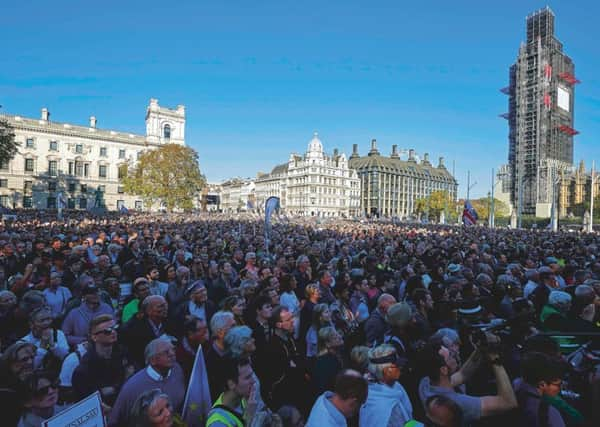Leader: Only a second vote can avert a historic mistake


The 2016 referendum result has created some hugely complicated issues – the turmoil within the UK’s two main political parties and even within Theresa May’s cabinet is evidence of that. No-one, whether in Westminster or Brussels, has been able to come up with a divorce deal that satisfies both parties.
The only proposal on the table – Theresa May’s Chequers plan – seems to please no-one, least of all committed Brexiteers, who complain it will turn this country into an EU “vassal state”; but for many European leaders it gives the UK too much, undermining the integrity of the EU’s Single Market. For May, it appears to represent the best deal she believes she can get and still abide by the referendum result, but, as a Remain voter, she may not even truly believe in it herself.
Advertisement
Hide AdAdvertisement
Hide AdAs things stand, the UK is heading towards a watered-down version of Chequers or a “no-deal” Brexit. Is there anyone in the country who will be happy with either outcome? In these circumstances, it seems right that the people should be asked to vote in a second referendum on whether the UK should leave the EU under the terms agreed or instead remain a member.
Other forms of a second referendum have been suggested, such as a question asking only for a verdict on the deal, without the option to remain. But that could see voters reject the plan, forcing May or more likely a new prime minister to return to the Brussels to renegotiate, despite there being virtually no chance of any significant progress at this late stage. So, a vote to reject Chequers-lite would instead simply catapult the UK into a dangerous and chaotic no-deal Brexit. Such a referendum would not really be a choice at all, and a deeply unpopular deal would win by a landslide. To give people a genuine choice means putting Remain on the ballot paper.
But there is another important reason to do this. If the UK leaves the EU, its population will need to pull together to make “Brexit Britain” a success. As things stand, many Remainers will complain about “lies” told during the 2016 referendum campaign and insist people were tricked into a mistake; calls for the UK to rejoin the EU could multiply and British politics could be mired in an endless debate.
A second pro-Brexit referendum result would, or should, put this issue to rest; it would truly be the “Will of the People”.
A vote to remain would be contentious – Brexiteers would almost certainly regroup and try to find a better way of leaving the EU – but it would mean the UK avoids going down a path that no-one wants to take in what could be one of the greatest mistakes in its history.